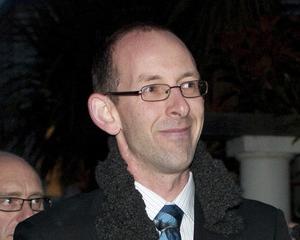A friend of Laniet, whose name is suppressed, told the court that Laniet had revealed to her that she was working as a prostitute.
David Bain, 37, is on trial again for shooting dead his parents and three siblings - Arawa, Laniet and Stephen - in June, 1994, but his defence team say his father Robin murdered the family before turning the .22 rifle on himself.
The friend said that Laniet hated working as a prostitute and was quitting and planning a new start.
"It was not her chosen career path," the friend said.
The friend said it was her understanding that Laniet's father Robin did not know about the prostitution.
The prostitution had led Laniet to smoke cannabis heavily.
The defence say Robin, 58, and Laniet, 18, were involved in an incestuous relationship, and this is a motive for him committing murder.
But the friend said she never noticed anything unusual in the relationship between Laniet and Robin. The pair seemed to get on well and have a warm relationship.
"They seemed to be great mates."
Asked if Laniet got on well with David, she said did not recall Laniet saying anything negative or positive about the relationship.
Previous witnesses have told the court that Laniet was scared of David.
The friend said Laniet moved out of her family's home after speaking about being unhappy there, due to a lot of fights with her mother, Margaret.
Laniet's older sister Arawa, 19, seemed to run the household. Margaret "ruled the roost", but would not do any of the household chores.
Lens evidence
An optometrist this morning told the court that he was shocked to find his change of opinion on important evidence in the murder case against David Bain was not reflected in evidence given in a court.
Gordon Sanderson also told the High Court in Christchurch that he was surprised that other evidence he commented on was never raised in the original murder trial of David Bain in 1995.
Mr Sanderson was asked by police to analyse items taken from the Bain family home, including a lens and a pair of spectacle frames
Police evidence has been given about the spectacle lens being found in the bedroom of David's brother, Stephen, 14, where a violent struggle took place before Stephen was shot dead. David Bain's lawyers have accused former police detective Milton Weir of planting the lens in Stephen's bedroom, which Mr Weir denies.
The prosecution case is that the lens fell from the frames David was wearing during the struggle. The defence say the frames actually belonged to David's mother, Margaret, and the lens could have been in Stephen's bedroom before the killings.
Mr Sanderson today told the court that from his examinations, the lens from Stephen's room belonged to frames that were found sitting on a chair in David's bedroom.
The frames were damaged from the application of "quite decent pressure", powerful enough to displace the lens, Mr Sanderson said.
Mr Sanderson said he was asked to determine who the glasses belonged to, and said his initial view was that they were David's.
This was based on a close resemblance to an earlier prescription of David's, the masculine appearance of the frames, and the fact the frames were found in David's bedroom.
He did have concerns over this finding that the correction in the lenses for a stigmatism did not seem to match with David.
Mr Sanderson told the court his opinion had since changed, and he now believed the glasses belonged to Margaret.
He formed this view after seeing a photograph in 1995 of Margaret wearing the glasses.
Mr Sanderson said he was originally asked by police if David could have worn his mother's glasses "and the penny dropped". Like his mother David was myopic, making it difficult to see into a distance.
Questioned by defence lawyer Michael Reed QC, Mr Sanderson said he believed his change in opinion would be corrected in a change in his evidence at the first murder trial of David Bain in 1995.
He gave evidence at this trial, and to his knowledge his evidence presented to the court had not been changed accordingly. He said this shocked him.
Mr Sanderson agreed with Mr Reed he also had a discussion with Mr Weir about dust on the lens found in Stephen's room.
Dust on the lens could indicate it had been in Stephen's room for some period of time.
Mr Sanderson confirmed Mr Weir said to him words to the effect that the dust was inconsequential. He thought this was an unusual way of dealing with evidence.
Mr Weir has stated this conversation about the dust did not happen, but Mr Sanderson maintained it did.
Mr Sanderson remained concerned about this issue, and later made a statement about it after he mentioned it at a dinner party.
He agreed with Mr Reed it was possible the lens could have been out of the glasses for a significant period of time, but it would have been easy for it to shatter over this time.





